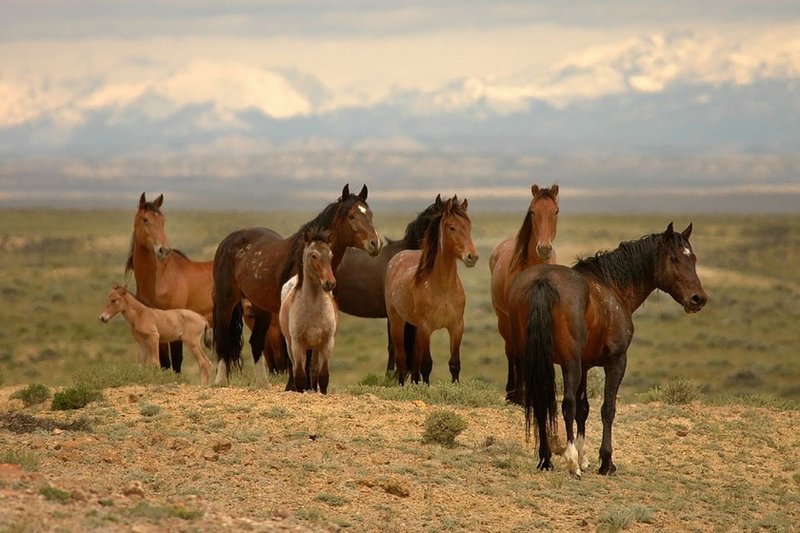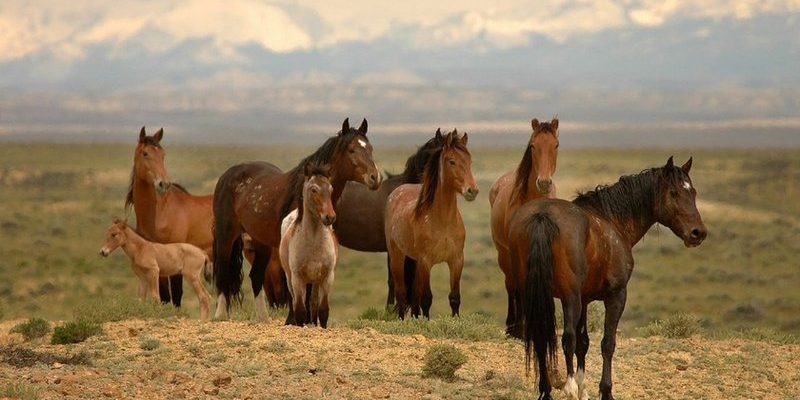
Imagine a world without horses. It would be like a ballet without a dancer—something essential would be missing. Horses have been companions to humans for centuries, but their impact on the environment is equally significant. They help maintain habitats, foster biodiversity, and even contribute to the very soil beneath our feet. So, let’s dive into the fascinating world of horses and explore their crucial contribution to the ecosystems where they roam.
Horses as Grazers: The Plant Connection
Horses are *natural grazers*, spending a big chunk of their day munching on grass and other plants. This feeding behavior helps control plant overgrowth in their habitats. Without horses, some areas could see certain grasses and plants take over, choking out other species. It’s a bit like how a dedicated gardener trims back some plants to let others flourish.
When horses graze, they also promote the growth of new plants. Their nibbling encourages a variety of grasses to sprout, creating a rich tapestry of plant life. This diversity is crucial because it attracts different animal species—think of it as hosting a garden party where every guest adds a different flavor to the event. The more diverse the plant life, the healthier the habitat becomes.
Additionally, horses help with seed dispersal. As they munch their way across the landscape, they often swallow seeds that are then deposited through their droppings. This process helps spread various plant species far and wide, enabling ecosystems to thrive and maintain genetic diversity.
Soil Health and Horses
You might not think about it much, but soil health is vital for thriving ecosystems. Horses contribute significantly to this by breaking up the ground as they move. Their hooves can aerate the soil, making it easier for water and nutrients to penetrate deep into the earth. Imagine trying to breathe through a thick blanket—it’s tough, right? Well, compacted soil can be just as stifling for plants.
Moreover, horse manure is a fantastic fertilizer. It’s packed with nutrients that enrich the soil. When left on fields, it not only provides a food source for plants but also encourages a healthy community of microorganisms. These tiny helpers break down organic materials, returning valuable nutrients back into the cycle of life.
However, it’s essential to manage horse populations responsibly. Too many hooves in one area can lead to overgrazing and soil degradation. Just like enjoying a meal, moderation is key. Keeping the right balance allows the land to flourish.
Supporting Wildlife: The Horse as Habitat
Horses don’t just live side by side with other animals; they actively support wildlife in numerous ways. Their presence creates a dynamic environment that benefits various species. For example, the areas where horses graze often become a haven for insects and small animals. Many birds, such as ground-nesting species, can thrive in the grasslands maintained by grazing horses.
Also, the shade provided by horses helps smaller creatures escape the heat. Think of it like finding a cozy spot under a tree on a hot summer day. Animals like rabbits and deer may also use horse trails as pathways, making it easier for them to navigate their surroundings.
When horse populations are healthy, they can create what we call a “keystone species” effect. This means their presence has a disproportionately large impact on their environment. In this case, horses help maintain healthy ecosystems that can support a range of other plants and animals.
Horses and Human Interaction: A Shared Ecosystem
Humans and horses share a long history, and this relationship has significant implications for ecosystems. Horses have been domesticated for thousands of years, and many communities rely on them for work and transportation. The challenge lies in how this interaction impacts the natural world.
When managed sustainably, horses can contribute positively to local ecosystems. For instance, horse farms can create habitats that support local wildlife, turning them into sanctuaries that promote biodiversity. However, if not managed carefully, horses can also lead to overgrazing, pollution from manure, and habitat destruction.
It’s crucial for horse owners to be mindful of their environmental footprint. Practices such as rotation grazing—moving horses between different pastures—can help maintain healthy land. Plus, planting native plants on horse farms can boost local ecosystems, paving the way for healthier interactions between humans and wildlife.
Horses in Cultural Ecosystems
Beyond their environmental role, horses occupy a significant space in our cultural ecosystems. From myths and legends to art and literature, horses symbolize strength, freedom, and companionship. They influence how we see our relationship with nature and animals.
In many cultures, horses have been integral to traditional practices. For example, some communities celebrate annual events that honor horses, emphasizing the bond between humans and these magnificent creatures. These celebrations often promote awareness of the importance of animal welfare and ecological stewardship.
Moreover, horses can serve as a bridge between humans and nature. Riding programs can foster a greater appreciation for the outdoors while teaching participants about the environment. Imagine spending a day on horseback, traversing beautiful landscapes—it’s a fantastic way to connect with nature and understand the importance of horses in sustaining their ecosystems.
As we wrap up our exploration of the horse’s role in its ecosystem, it’s clear that these remarkable animals contribute far more than just companionship. From fostering plant diversity to supporting wildlife, horses are vital players in maintaining the balance of nature.
However, our relationship with them presents challenges and opportunities. By managing horse populations responsibly and recognizing their environmental impact, we can ensure they continue to thrive alongside us. The future of horses in ecosystems depends on our willingness to prioritize sustainable practices and maintain the harmony between our world and theirs.
So, the next time you see a horse galloping across a field, remember that they’re not just beautiful creatures—they’re crucial to the health of our planet. Caring for horses means caring for ecosystems, and that connection is something we should cherish and protect.

